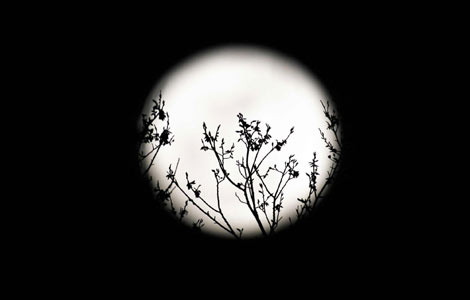Op-Ed Contributors
A tale of Japan's nuclear morality
Updated: 2011-03-17 08:01
By Brahma Chellaney (China Daily)
Indeed, during the 2003 heat wave, Electricite de France (EDF), which operates 58 reactors - the majority on ecologically sensitive rivers like the Loire - was compelled to buy power from neighboring countries on the European spot market. The state-owned EDF, which normally exports power, ended up paying 10 times the price of domestic power, incurring a financial cost of 300 million.
Similarly, although the 2006 European heat wave was less intense, water and heat problems forced Germany, Spain and France to take some nuclear power plants offline and reduce operations at others. Highlighting the vulnerability of nuclear power to environmental change or extreme-weather patterns, in 2006 plant operators in Western Europe also secured exemptions from regulations that would have prevented them from discharging overheated water into natural ecosystems, affecting fisheries.
France likes to showcase its nuclear power industry, which supplies about 77 percent of the country's electricity. But such is the nuclear industry's water intensity that EDF withdraws up to 19 billion cubic meters of water a year from rivers and lakes, or roughly half of France's total freshwater consumption. Freshwater scarcity is a growing international challenge, and the vast majority of countries are in no position to approve of such highly water-intensive inland-based energy systems.
Nuclear plants located by the sea do not face similar problems in hot conditions, because ocean waters do not heat up anywhere near as rapidly as rivers or lakes. And, because they rely on seawater, they cause no freshwater scarcity. But, as Japan's reactors have shown, coastal nuclear-power plants confront more serious dangers.
When the Indian Ocean tsunami struck, the Chennai reactor's core could be kept in safe shutdown condition because the electrical systems had been ingeniously installed on higher ground than the plant itself. And, unlike Fukushima, which bore a direct impact, Madras was far away from the epicenter of the earthquake that unleashed the tsunami.
The central dilemma of nuclear power in an increasingly water-stressed world is that it is a water guzzler, yet vulnerable to water. And, decades after Lewis L. Strauss, former chairman of the United States Atomic Energy Agency, claimed that nuclear power would become "too cheap to meter", the nuclear industry everywhere still subsists on munificent government subsidies.
While the appeal of nuclear power has declined considerably in the West, it has grown among the so-called "nuclear newcomers", which brings with it new challenges, including concerns about proliferation of nuclear weapons. Moreover, with nearly two-fifths of the world's population living within 100 kilometers of a coastline, finding suitable seaside sites for initiation or expansion of a nuclear-power program is no longer easy.
Fukushima is likely to stunt the appeal of nuclear power in a way similar to the accident at the Three Mile Island plant in Pennsylvania in 1979, not to mention the far more severe meltdown of the Chernobyl reactor (in today's Ukraine) in 1986. If the fallout from those incidents is a reliable guide, however, nuclear power's advocates will eventually be back.
The author is a professor of strategic studies at the Center for Policy Research in New Delhi. Asian Juggernaut: The Rise of China, India, and Japan, and Water: Asia's New Battlefield are his latest books.
Project Syndicate
(China Daily 03/17/2011 page9)
E-paper

City of Joy
Welcome to the 'world of smiles' where life meanders slowly.
Preview of the coming issue
Debate on nuclear power revived
The future is now
Specials

Beloved polar bear died
Berlin's beloved polar bear Knut, an international star died Saturday.

Panic buying of salt
Worried Chinese shoppers stripped stores of salt on radiation fears.

'Super moon'
The "Super Moon" arrives at its closest point to the Earth in 2011.
